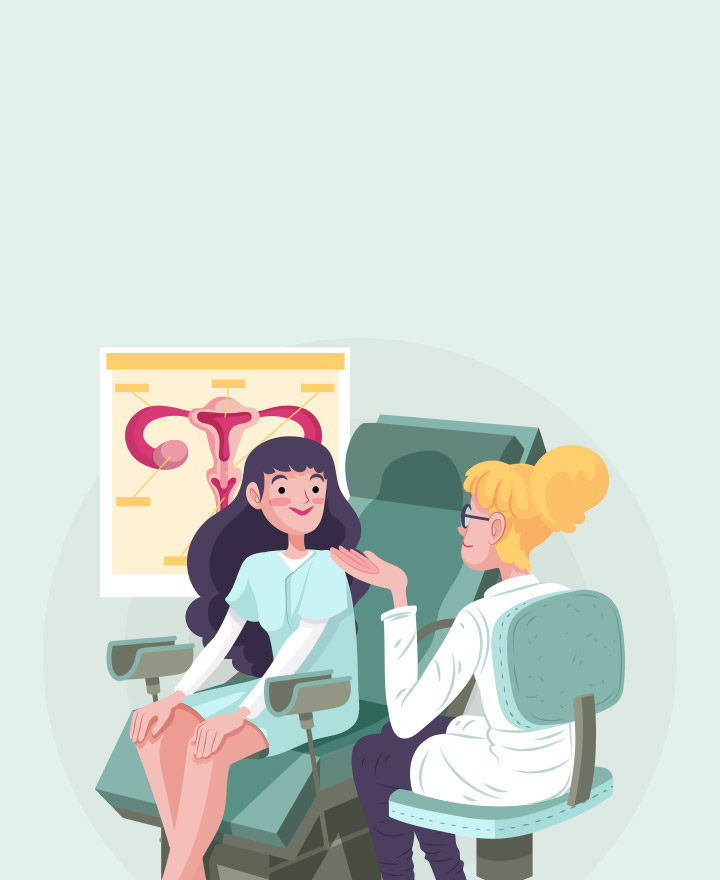

Understanding Chemical Pregnancy: An Overview
Miscarriages are always difficult and painful experience for a woman. The sudden loss of a precious life has a long-lasting impact on the entire family.
Early miscarriages are often called chemical pregnancies. These kinds of miscarriages are common and happen just after the first few weeks of conception. If you are pregnant or your loved ones are expecting, here is a detailed insight on chemical pregnancy.
What is a Chemical Pregnancy?
• A chemical pregnancy is a miscarriage occurring in the initial five weeks of pregnancy.
• During this time, an embryo forms and may implant in the uterus lining, but development halts.
• The early occurrence often means individuals may not be aware of the miscarriage.
• Experiencing a chemical pregnancy is emotionally challenging, especially for those trying to conceive.
• It’s important to note that having one chemical pregnancy doesn’t necessarily impact the ability to carry a baby to term.
• Many individuals who have faced early miscarriages go on to have successful pregnancies later on.
Symptoms of a Chemical Pregnancy
• Your menstrual cycle gets delayed by approximately a week.
• You receive a positive pregnancy test result, and subsequently, you get your period.
• Initially positive, the pregnancy test turns negative a few weeks later.
• Experience a heavier flow than usual with more intense menstrual cramps.
• Even with a positive pregnancy test, you may not observe typical early pregnancy signs.
• Confirming a chemical pregnancy requires taking a pregnancy test, either through urine or blood tests.
Conclusion
Understanding the concept of a chemical pregnancy and being aware of its common signs is crucial for individuals navigating early pregnancy experiences. When it comes to maternity-related issues, it is essential to take precautions.
One of the important components of our overall wellness is also being financially secured. Healthcare emergencies can happen any time, but a good health insurance policy can protect you from such uncertain situations. To know more about Wellness and other health related tips, visit the wellness corner.
Source: webmd.com, my.clevelandclinic.org
Disclaimer: This blog provides general information and discussions about health and related subjects. The information and other content provided in this blog, website or in any linked materials are not intended and should not be considered, or used as a substitute for, medical advice, diagnosis or treatment. Kindly contact your Doctor before starting a new medicine or health regime.
Related Articles
Foods Linked to Miscarriage - What to Avoid
Is It Safe to Eat Papaya During Pregnancy Check Out Here!
Dos And Don'ts During the First Trimester
Tips to Stay Safe When Travelling While Pregnant
Safe Caffeine Intake During Pregnancy
Published on February 23, 2024














 Health Insurance
Health Insurance  Travel Insurance
Travel Insurance  Car Insurance
Car Insurance  Cyber Insurance
Cyber Insurance  Critical Illness Insurance
Critical Illness Insurance
 Pet Insurance
Pet Insurance
 Bike/Two Wheeler Insurance
Bike/Two Wheeler Insurance  Home Insurance
Home Insurance  Third Party Vehicle Ins.
Third Party Vehicle Ins.  Tractor Insurance
Tractor Insurance  Goods Carrying Vehicle Ins.
Goods Carrying Vehicle Ins.  Passenger Carrying Vehicle Ins.
Passenger Carrying Vehicle Ins.  Compulsory Personal Accident Insurance
Compulsory Personal Accident Insurance  Travel Insurance
Travel Insurance  Rural
Rural